 Libri di Ricardo Peter su Unilibro.it
)
Libri di Ricardo Peter su Unilibro.it
)
|
|
1917 |
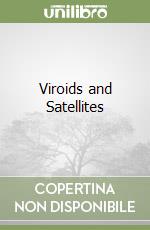 Title :
Viroids and Satellites
Title :
Viroids and SatellitesAuthor: Hadidi Ahmed (EDT), Flores Ricardo (EDT), Palukaitis Peter (EDT), Randles John W. (EDT) Publisher: Academic Pr € 132,90
|
|
|
1914 |
 Title :
Nove Novos - Neun Neue
Title :
Nove Novos - Neun NeueAuthor: Schmal Peter Cachola (EDT), Ohtake Ricardo (EDT), Scheuermann Anna (EDT), Serapipo Fernando (EDT), Finotti Leonardo (PHT) Publisher: Jovis € 37,00
|
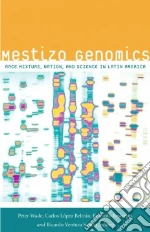 Title :
Mestizo Genomics
Title :
Mestizo GenomicsAuthor: Wade Peter (EDT), Beltran Carlos Lopez (EDT), Restrepo Eduardo (EDT), Santos Ricardo Ventura (EDT) Publisher: Duke Univ Pr In genetics laboratories in Latin America, scientists have been mapping the genomes of local populations, seeking to locate the genetic basis of complex diseases and to trace population histories. As part of their work, geneticists often calculate the European, African, and Amerindian genetic ancestry of populations. Some researchers explicitly connect their findings to questions of national identity and racial and ethnic difference, bringing their research to bear on issues of politics and identity. Based on ethnographic research in Brazil, Colombia, and Mexico, the contributors to Mestizo Genomics explore how the concepts of race, ethnicity, nation, and gender enter into and are affected by genomic research. In Latin America, national identities are often based on ideas about mestizaje (race mixture), rather than racial division. Since mestizaje is said to involve relations between European men and indigenous or African women, gender is a key factor in Latin American genomics and the analyses in this book. Also important are links between contemporary genomics and recent moves toward official multiculturalism in Brazil, Colombia, and Mexico. One of the first studies of its kind, Mestizo Genomics sheds new light on the interrelations between 'race,' identity, and genomics in Latin America. Contributors. Adriana Díaz del Castillo H., Roosbelinda Cárdenas, Vivette García Deister, Verlan Valle Gaspar Neto, Michael Kent, Carlos López Beltrán, María Fernanda Olarte Sierra, Eduardo Restrepo, Mariana Rios Sandoval, Ernesto Schwartz-Marín, Ricardo Ventura Santos, Peter Wade € 24,10
|
|
2006 |
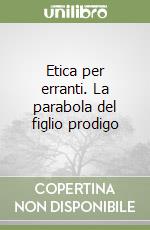 Title :
Etica per erranti. La parabola del figlio prodigo
Title :
Etica per erranti. La parabola del figlio prodigoAuthor: Peter Ricardo Publisher: Cittadella Partendo dall'analisi della parabola del figliol prodigo l'autore descrive due caratteristiche dell'animo umano: lo sbaglio e la compassione verso chi ha sbagliato. Da una parte la parabola evidenzia la condizione fragile dell'uomo, dall'altra fa ricorso alla clemenza di fronte a questa stessa condizione. La parabola è il trionfo dell'umano (inteso come compassione) sull'umano (inteso come errore). In sintesi, l'etica del limite diventa 'etica per persone erranti', cioè orientamento e affermazione della propria umanità. € 12,50
Scontato: € 11,88
|
|
|
1996 |
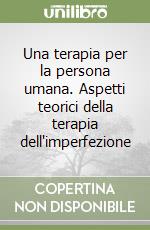 Title :
Una terapia per la persona umana. Aspetti teorici della terapia dell'imperfezione
Title :
Una terapia per la persona umana. Aspetti teorici della terapia dell'imperfezioneAuthor: Peter Ricardo Publisher: Cittadella € 11,50
Scontato: € 10,93
|
|
|
1995 |
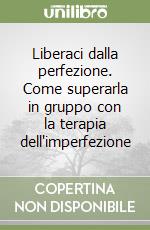 Title :
Liberaci dalla perfezione. Come superarla in gruppo con la terapia dell'imperfezione
Title :
Liberaci dalla perfezione. Come superarla in gruppo con la terapia dell'imperfezioneAuthor: Peter Ricardo Publisher: Cittadella € 12,10
Scontato: € 11,50
|